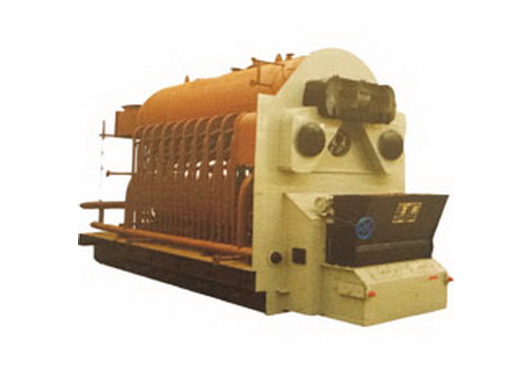一個好的鍋爐是經過不斷的思考設計后又經過試驗的!鍋爐TA-02結構很完整,并且具有an全裝置,讓使用者更an全。
為了考核性能和改進設計,鍋爐常要經過熱平衡試驗。直接從有效利用能量來計算鍋爐熱效率的方法叫正平衡,從各種熱損失來反算效率的方法叫反平衡。考慮鍋爐房的實際效益時,不僅要看鍋爐熱效率,還要計及鍋爐輔機所消耗的能量。
單位質量或單位容積的燃料完全燃燒時,按化學反應計算出的空氣需求量稱為理論空氣量。為了使燃料在爐膛內有更多的機會與氧氣接觸而燃燒,實際送入爐內的空氣量總要大于理論空氣量。雖然多送入空氣可以減少不完全燃燒熱損失,但排煙熱損失會增大,還會加劇硫氧化物腐蝕和氮氧化物生成。因此應設法改進燃燒技術,爭取以盡量小的過量空氣系數使爐膛內燃燒完全。
A good boiler is after continuous thinking design and tested! The boiler TA-02 has a complete structure and a safety device to make the user safer.
In order to assess the performance and improve the design, the boiler often go through thermal equilibrium test. The method of calculating the thermal efficiency of a boiler directly from the efficient use of energy is called a counterbalance, and the method of back-calculating efficiency from various heat losses is called anti-balance. When considering the actual benefits of the boiler room, not only the thermal efficiency of the boiler but also the energy consumed by the auxiliary boiler is taken into consideration.
When the unit mass or unit volume of fuel is completely combusted, the air demand calculated by chemical reaction is called the theoretical air volume. In order to make the fuel in the furnace have more opportunities to contact with oxygen combustion, the actual amount of air into the furnace is always greater than the theoretical amount of air. Although more air can be injected into the air to reduce the heat loss from incomplete combustion, heat loss from the exhaust fumes can increase and sulfur oxides and nitrogen oxides can be further exacerbated. Therefore, efforts should be made to improve the combustion technology so as to make the combustion in the furnace complete with a minimum excess air ratio.
- 上一篇:鍋爐BoilerTA-03
- 下一篇:鍋爐BoilerTA-01

